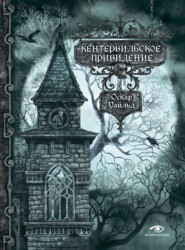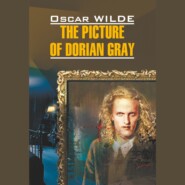По всем вопросам обращайтесь на: info@litportal.ru
(©) 2003-2025.
✖
The Picture of Dorian Gray
Настройки чтения
Размер шрифта
Высота строк
Поля
The Picture of Dorian Gray
Oscar Wilde
HarperCollins is proud to present a range of best-loved, essential classics.'How sad it is! I shall grow old, and horrid, and dreadful. But this picture will remain always young… If it was only the other way!'Wilde's first and only published novel recounts the story of handsome Dorian Gray who upon having his portrait painted desires that it will age and grow ugly while he may remain eternally beautiful. The painting, which reflects each of Gray's sins and transgressions in its hideousness, haunts him until it finally becomes unbearable. In this dark tale of duplicity and mortality, Wilde creates a world where art and reality collide.
Collins Classics
History of Collins (#ulink_227af746-5ebd-517a-ad2a-da4f035b9d3b)
In 1819, Millworker William Collins from Glasgow, Scotland, set up a company for printing and publishing pamphlets, sermons, hymn books and prayer books. That company was Collins and was to mark the birth of HarperCollins Publishers as we know it today. The long tradition of Collins dictionary publishing can be traced back to the first dictionary William published in 1824, Greek and English Lexicon. Indeed, from 1840 onwards, he began to produce illustrated dictionaries and even obtained a licence to print and publish the Bible.
Soon after, William published the first Collins novel, Ready Reckoner, however it was the time of the Long Depression, where harvests were poor, prices were high, potato crops had failed and violence was erupting in Europe. As a result, many factories across the country were forced to close down and William chose to retire in 1846, partly due to the hardships he was facing.
Aged 30, William’s son, William II took over the business. A keen humanitarian with a warm heart and a generous spirit, William II was truly ‘Victorian’ in his outlook. He introduced new, up-to-date steam presses and published affordable editions of Shakespeare’s works and Pilgrim’s Progress, making them available to the masses for the first time. A new demand for educational books meant that success came with the publication of travel books, scientific books, encyclopaedias and dictionaries. This demand to be educated led to the later publication of atlases and Collins also held the monopoly on scripture writing at the time.
In the 1860s Collins began to expand and diversify and the idea of ‘books for the millions’ was developed. Affordable editions of classical literature were published and in 1903 Collins introduced 10 titles in their Collins Handy Illustrated Pocket Novels. These proved so popular that a few years later this had increased to an output of 50 volumes, selling nearly half a million in their year of publication. In the same year, The Everyman’s Library was also instituted, with the idea of publishing an affordable library of the most important classical works, biographies, religious and philosophical treatments, plays, poems, travel and adventure. This series eclipsed all competition at the time and the introduction of paperback books in the 1950s helped to open that market and marked a high point in the industry.
HarperCollins is and has always been a champion of the classics and the current Collins Classics series follows in this tradition – publishing classical literature that is affordable and available to all. Beautifully packaged, highly collectible and intended to be reread and enjoyed at every opportunity.
Life & Times (#ulink_e7fe2f0e-7726-59ef-863d-03d20e54153c)
About the Author
Oscar Wilde had an erudite way with words and is often quoted to this day. He was known as a sharp wit, delivering lines that cut through conversation making him at once popular and vilified, depending on the nature of those at the receiving end. Sadly for Wilde, it was his enemies that got the better of him. At a time when it was illegal for men to have sexual relations with other men, Wilde was imprisoned and exiled for his sexual preferences.
Wilde wrote only one novel, The Picture of Dorian Gray, as well as poetry and short stories, but he was first and foremost a playwright, and a very successful one at that. He is perhaps best known for his play The Importance of Being Ernest and his most well-known poem is The Ballad of Reading Gaol, which he wrote following his incarceration.
Wilde was born into a privileged Dublin family. He had a fairly uneventful childhood, but performed very well at university, studying at Magdalen College, Oxford. It was as a student that he began to use his high intellect to put others down, and as a result many of his peers took a dislike to him. He also began to cultivate an image for himself that could be described as outrageously camp, in both appearance and conduct. It was the behaviour of homosexuals such as Wilde that led to the word ‘gay’ earning its modern meaning, because people began using the term in describing this tendency for gaiety in demeanour. It was a euphemism that mutated over time. Needless to say, Wilde’s effeminate and showy image, although entertaining to some, was thought immoral by polite Victorian society. For every person who celebrated his outlandish posturing there was always someone else who wanted him to fall from grace.
Despite Wilde’s sexual orientation he did his best to conceal it for fear of prosecution. This included his becoming betrothed and producing two sons. One of his sons sadly perished in World War I. The other became an author himself, but he concealed his identity for many years due to his father’s reputation and following his disgrace and downfall.
Wilde finally capitulated to his homosexual desires when he met a boy named Robert Ross and fell in love. He had undoubtedly known about his leanings but managed to constrain himself until Ross appeared. Wilde is known to have relished the excitement that came from the danger of his situation. He had a number of further homoerotic encounters and became involved with a group of homosexual men who were secretly campaigning for reforms in the law to decriminalize their behaviour.
Unfortunately for Wilde he had begun an affair with the son of the Marquess of Queensbury and this proved his undoing. The Marquess blamed Wilde for perverting his son’s sexuality and was determined to see Wilde prosecuted for his crimes. Ironically it was Wilde who took the Marquess to court for criminal libel, such was Wilde’s overconfidence. Things backfired though, and Wilde found himself in the dock for ‘gross indecency’. He was sentenced to two years hard labour, which he served at Pentonville, Wandsworth and Reading prisons.
Following his manumission Wilde took a new name and fled to Europe as Sebastian Melmoth. His experience as a convict had affected his health badly and he survived for only three more years, dying at the age of 46 in Paris. Had his health been more vigorous, Wilde may well have seen a time when society forgave him for his indiscretions, for his talent as a writer was undisputed. As it was, he passed away before the dust had settled and a long time before homosexuality became decriminalized.
The Picture of Dorian Gray
Dorian Gray is a young and handsome man who becomes obsessed with the idea of beauty when he has his portrait painted. He makes a wish that he might remain forever youthful and that the portrait of him will age over time instead.
Soon after the wish is made he commits his first sin and discovers that the portrait has already begun to change in response to his amorality rather than to time passing. Gray realizes that he has license to do whatever he likes, so he does. Over the next couple of decades Gray commits all manner of sins, including murder, until the portrait has become a hideous visage. Yet, Gray himself has not changed in appearance since he made his wish. Eventually Gray becomes tormented by his own behaviour and attacks the painting with a knife. He is found stabbed to death, while the painting is restored to its original appearance.
Wilde used the device of the painting to address various agendas. The most obvious message is that there is always a price to be paid for iniquitous and self indulgent behaviour, and that it will catch up with you in the end. The painting is also a comment about the confessional in the Catholic Church. Like the priest behind the screen, the painting absorbs Gray’s sins, so that he can walk away and continue with his debauchery.
Most of all, the story of Dorian Gray is autobiographical. Wilde saw that his own behaviour was leading him down a path that could only end in disaster. The novel is a portent of his own abrupt end, yet it seems that he could not help himself and prevent it from happening.
Dorian Gray might ordinarily be perceived as a villain and a cad, who ultimately gets his just desserts, but as a personification of Wilde’s inner demons he becomes a figure of pity and inevitable doom. The moral of the story is ‘be careful what you wish for’ as Dorian Gray allows himself to be overrun by his own wickedness by deferring responsibility for his actions.
People are usually called into check by the consequences of their own misdemeanours, so that they learn empathy and sympathy. Without consequences, selfish inclinations are allowed to run riot and become amplified until the person has no control. That is what happens to Dorian Gray, and that is what Wilde is saying about his own plight. As a privileged and successful celebrity Wilde is allowed free-rein to do what he likes with impunity, but he can see that sooner or later he will come unstuck.
Visit www.AuthorTracker.com for exclusive information on your favorite HarperCollins author.
Table of Contents
Cover Page (#uc72c1667-1f0e-5851-aeaa-fdff49c7c470)
Title Page (#u35da1780-47c4-57bc-83e3-2e2018c26aa6)
History of Collins (#u110ddb9a-9470-529a-9ec4-06b1a9a14e08)
Life & Times (#uc6427208-549d-59fc-a5ea-ec7b06fecd3e)
THE PREFACE (#u0e0e46ba-1d0e-5723-90fa-d4b28da17ea7)
CHAPTER 1 (#u4df8e5fa-8c01-56e1-93cf-e1e51dc931df)
CHAPTER 2 (#u3f734812-b8ca-5cb9-b444-22fbfa5236d3)
CHAPTER 3 (#u6eb6e7d4-dbab-59f8-9ed4-7b7a6a697ac6)
CHAPTER 4 (#u79604ba6-5f22-5594-9558-088d47cf0afc)
CHAPTER 5 (#u817c5851-9814-5c60-9218-a6320c969b0f)
CHAPTER 6 (#litres_trial_promo)
CHAPTER 7 (#litres_trial_promo)
CHAPTER 8 (#litres_trial_promo)
CHAPTER 9 (#litres_trial_promo)
CHAPTER 10 (#litres_trial_promo)
CHAPTER 11 (#litres_trial_promo)
CHAPTER 12 (#litres_trial_promo)
CHAPTER 13 (#litres_trial_promo)
CHAPTER 14 (#litres_trial_promo)
CHAPTER 15 (#litres_trial_promo)
CHAPTER 16 (#litres_trial_promo)
CHAPTER 17 (#litres_trial_promo)
CHAPTER 18 (#litres_trial_promo)
Oscar Wilde
HarperCollins is proud to present a range of best-loved, essential classics.'How sad it is! I shall grow old, and horrid, and dreadful. But this picture will remain always young… If it was only the other way!'Wilde's first and only published novel recounts the story of handsome Dorian Gray who upon having his portrait painted desires that it will age and grow ugly while he may remain eternally beautiful. The painting, which reflects each of Gray's sins and transgressions in its hideousness, haunts him until it finally becomes unbearable. In this dark tale of duplicity and mortality, Wilde creates a world where art and reality collide.
Collins Classics
History of Collins (#ulink_227af746-5ebd-517a-ad2a-da4f035b9d3b)
In 1819, Millworker William Collins from Glasgow, Scotland, set up a company for printing and publishing pamphlets, sermons, hymn books and prayer books. That company was Collins and was to mark the birth of HarperCollins Publishers as we know it today. The long tradition of Collins dictionary publishing can be traced back to the first dictionary William published in 1824, Greek and English Lexicon. Indeed, from 1840 onwards, he began to produce illustrated dictionaries and even obtained a licence to print and publish the Bible.
Soon after, William published the first Collins novel, Ready Reckoner, however it was the time of the Long Depression, where harvests were poor, prices were high, potato crops had failed and violence was erupting in Europe. As a result, many factories across the country were forced to close down and William chose to retire in 1846, partly due to the hardships he was facing.
Aged 30, William’s son, William II took over the business. A keen humanitarian with a warm heart and a generous spirit, William II was truly ‘Victorian’ in his outlook. He introduced new, up-to-date steam presses and published affordable editions of Shakespeare’s works and Pilgrim’s Progress, making them available to the masses for the first time. A new demand for educational books meant that success came with the publication of travel books, scientific books, encyclopaedias and dictionaries. This demand to be educated led to the later publication of atlases and Collins also held the monopoly on scripture writing at the time.
In the 1860s Collins began to expand and diversify and the idea of ‘books for the millions’ was developed. Affordable editions of classical literature were published and in 1903 Collins introduced 10 titles in their Collins Handy Illustrated Pocket Novels. These proved so popular that a few years later this had increased to an output of 50 volumes, selling nearly half a million in their year of publication. In the same year, The Everyman’s Library was also instituted, with the idea of publishing an affordable library of the most important classical works, biographies, religious and philosophical treatments, plays, poems, travel and adventure. This series eclipsed all competition at the time and the introduction of paperback books in the 1950s helped to open that market and marked a high point in the industry.
HarperCollins is and has always been a champion of the classics and the current Collins Classics series follows in this tradition – publishing classical literature that is affordable and available to all. Beautifully packaged, highly collectible and intended to be reread and enjoyed at every opportunity.
Life & Times (#ulink_e7fe2f0e-7726-59ef-863d-03d20e54153c)
About the Author
Oscar Wilde had an erudite way with words and is often quoted to this day. He was known as a sharp wit, delivering lines that cut through conversation making him at once popular and vilified, depending on the nature of those at the receiving end. Sadly for Wilde, it was his enemies that got the better of him. At a time when it was illegal for men to have sexual relations with other men, Wilde was imprisoned and exiled for his sexual preferences.
Wilde wrote only one novel, The Picture of Dorian Gray, as well as poetry and short stories, but he was first and foremost a playwright, and a very successful one at that. He is perhaps best known for his play The Importance of Being Ernest and his most well-known poem is The Ballad of Reading Gaol, which he wrote following his incarceration.
Wilde was born into a privileged Dublin family. He had a fairly uneventful childhood, but performed very well at university, studying at Magdalen College, Oxford. It was as a student that he began to use his high intellect to put others down, and as a result many of his peers took a dislike to him. He also began to cultivate an image for himself that could be described as outrageously camp, in both appearance and conduct. It was the behaviour of homosexuals such as Wilde that led to the word ‘gay’ earning its modern meaning, because people began using the term in describing this tendency for gaiety in demeanour. It was a euphemism that mutated over time. Needless to say, Wilde’s effeminate and showy image, although entertaining to some, was thought immoral by polite Victorian society. For every person who celebrated his outlandish posturing there was always someone else who wanted him to fall from grace.
Despite Wilde’s sexual orientation he did his best to conceal it for fear of prosecution. This included his becoming betrothed and producing two sons. One of his sons sadly perished in World War I. The other became an author himself, but he concealed his identity for many years due to his father’s reputation and following his disgrace and downfall.
Wilde finally capitulated to his homosexual desires when he met a boy named Robert Ross and fell in love. He had undoubtedly known about his leanings but managed to constrain himself until Ross appeared. Wilde is known to have relished the excitement that came from the danger of his situation. He had a number of further homoerotic encounters and became involved with a group of homosexual men who were secretly campaigning for reforms in the law to decriminalize their behaviour.
Unfortunately for Wilde he had begun an affair with the son of the Marquess of Queensbury and this proved his undoing. The Marquess blamed Wilde for perverting his son’s sexuality and was determined to see Wilde prosecuted for his crimes. Ironically it was Wilde who took the Marquess to court for criminal libel, such was Wilde’s overconfidence. Things backfired though, and Wilde found himself in the dock for ‘gross indecency’. He was sentenced to two years hard labour, which he served at Pentonville, Wandsworth and Reading prisons.
Following his manumission Wilde took a new name and fled to Europe as Sebastian Melmoth. His experience as a convict had affected his health badly and he survived for only three more years, dying at the age of 46 in Paris. Had his health been more vigorous, Wilde may well have seen a time when society forgave him for his indiscretions, for his talent as a writer was undisputed. As it was, he passed away before the dust had settled and a long time before homosexuality became decriminalized.
The Picture of Dorian Gray
Dorian Gray is a young and handsome man who becomes obsessed with the idea of beauty when he has his portrait painted. He makes a wish that he might remain forever youthful and that the portrait of him will age over time instead.
Soon after the wish is made he commits his first sin and discovers that the portrait has already begun to change in response to his amorality rather than to time passing. Gray realizes that he has license to do whatever he likes, so he does. Over the next couple of decades Gray commits all manner of sins, including murder, until the portrait has become a hideous visage. Yet, Gray himself has not changed in appearance since he made his wish. Eventually Gray becomes tormented by his own behaviour and attacks the painting with a knife. He is found stabbed to death, while the painting is restored to its original appearance.
Wilde used the device of the painting to address various agendas. The most obvious message is that there is always a price to be paid for iniquitous and self indulgent behaviour, and that it will catch up with you in the end. The painting is also a comment about the confessional in the Catholic Church. Like the priest behind the screen, the painting absorbs Gray’s sins, so that he can walk away and continue with his debauchery.
Most of all, the story of Dorian Gray is autobiographical. Wilde saw that his own behaviour was leading him down a path that could only end in disaster. The novel is a portent of his own abrupt end, yet it seems that he could not help himself and prevent it from happening.
Dorian Gray might ordinarily be perceived as a villain and a cad, who ultimately gets his just desserts, but as a personification of Wilde’s inner demons he becomes a figure of pity and inevitable doom. The moral of the story is ‘be careful what you wish for’ as Dorian Gray allows himself to be overrun by his own wickedness by deferring responsibility for his actions.
People are usually called into check by the consequences of their own misdemeanours, so that they learn empathy and sympathy. Without consequences, selfish inclinations are allowed to run riot and become amplified until the person has no control. That is what happens to Dorian Gray, and that is what Wilde is saying about his own plight. As a privileged and successful celebrity Wilde is allowed free-rein to do what he likes with impunity, but he can see that sooner or later he will come unstuck.
Visit www.AuthorTracker.com for exclusive information on your favorite HarperCollins author.
Table of Contents
Cover Page (#uc72c1667-1f0e-5851-aeaa-fdff49c7c470)
Title Page (#u35da1780-47c4-57bc-83e3-2e2018c26aa6)
History of Collins (#u110ddb9a-9470-529a-9ec4-06b1a9a14e08)
Life & Times (#uc6427208-549d-59fc-a5ea-ec7b06fecd3e)
THE PREFACE (#u0e0e46ba-1d0e-5723-90fa-d4b28da17ea7)
CHAPTER 1 (#u4df8e5fa-8c01-56e1-93cf-e1e51dc931df)
CHAPTER 2 (#u3f734812-b8ca-5cb9-b444-22fbfa5236d3)
CHAPTER 3 (#u6eb6e7d4-dbab-59f8-9ed4-7b7a6a697ac6)
CHAPTER 4 (#u79604ba6-5f22-5594-9558-088d47cf0afc)
CHAPTER 5 (#u817c5851-9814-5c60-9218-a6320c969b0f)
CHAPTER 6 (#litres_trial_promo)
CHAPTER 7 (#litres_trial_promo)
CHAPTER 8 (#litres_trial_promo)
CHAPTER 9 (#litres_trial_promo)
CHAPTER 10 (#litres_trial_promo)
CHAPTER 11 (#litres_trial_promo)
CHAPTER 12 (#litres_trial_promo)
CHAPTER 13 (#litres_trial_promo)
CHAPTER 14 (#litres_trial_promo)
CHAPTER 15 (#litres_trial_promo)
CHAPTER 16 (#litres_trial_promo)
CHAPTER 17 (#litres_trial_promo)
CHAPTER 18 (#litres_trial_promo)

















